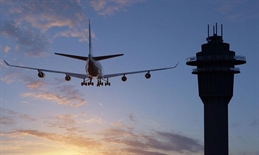
The European Organisation for the Safety of Air Navigation, (EUROCONTROL) said the closure of Ukrainian airspace, and the closure of Russian and Belarusian airspace to some carriers, have led to significant changes in flight patterns between Europe and Asia.
EUROCONTROL noted that the extra flight time between Asia and Europe has led some airlines to cancel their connections, with decisions driven by passenger and cargo demand, additional fuel costs, scheduling constraints, airport curfews, and staffing limitations, as well as capabilities of available aircraft.
It said, for example, Finnair suspended its Helsinki-Beijing service and SAS also halted its Copenhagen-Tokyo service due to these airspace closures that are piling more costs to operate the route.
EUROCONTROL added that some airlines are also introducing frequency reductions across several routes.
"Helsinki has been significantly affected, with distances on routes to Asia increased by between 1400km (Singapore) and almost 4000km (Seoul)," the organization said in an April 12 report.
It noted that routes from Copenhagen to Singapore and Shanghai have increased by around 1500km (932 miles).
Meanwhile, it said that Frankfurt in Germany is in a good geographical location to keep its flight time despite the ongoing airspace closures in Russia, Ukraine, and Belarus.
"Frankfurt is positioned sufficiently far south so that no additional distance is required to be flown to reach destinations in India and Southeast Asia," EUROCONTROL added.



